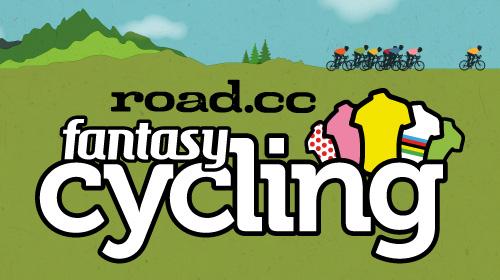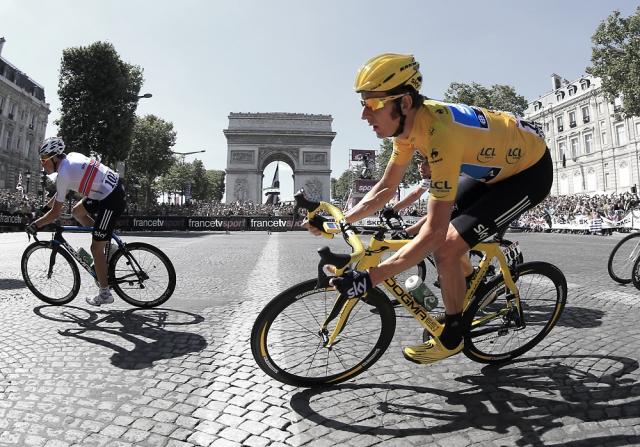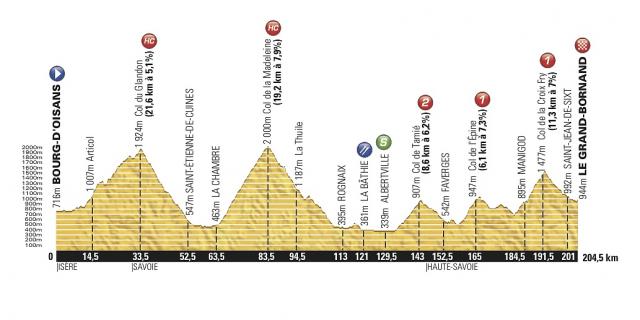- News
- Reviews
- Bikes
- Accessories
- Accessories - misc
- Computer mounts
- Bags
- Bar ends
- Bike bags & cases
- Bottle cages
- Bottles
- Cameras
- Car racks
- Child seats
- Computers
- Glasses
- GPS units
- Helmets
- Lights - front
- Lights - rear
- Lights - sets
- Locks
- Mirrors
- Mudguards
- Racks
- Pumps & CO2 inflators
- Puncture kits
- Reflectives
- Smart watches
- Stands and racks
- Trailers
- Clothing
- Components
- Bar tape & grips
- Bottom brackets
- Brake & gear cables
- Brake & STI levers
- Brake pads & spares
- Brakes
- Cassettes & freewheels
- Chains
- Chainsets & chainrings
- Derailleurs - front
- Derailleurs - rear
- Forks
- Gear levers & shifters
- Groupsets
- Handlebars & extensions
- Headsets
- Hubs
- Inner tubes
- Pedals
- Quick releases & skewers
- Saddles
- Seatposts
- Stems
- Wheels
- Tyres
- Health, fitness and nutrition
- Tools and workshop
- Miscellaneous
- Cross country mountain bikes
- Tubeless valves
- Buyers Guides
- Features
- Forum
- Recommends
- Podcast
feature
 Fantasy Cycling 2012 logo
Fantasy Cycling 2012 logoroad.cc Fantasy Cycling Guide Part two: playing for points
In the second of a series of three guides Dan Heaton, Fantasy Cycling admin and top-20 player, looks at the different aspects of the race that are scored, and how to put your team together to make the most of them.
Now that you know how to read a stage profile and what types of riders suit each day it's time to look at picking your team and how to get best return from your riders.
I'll go over how points are awarded for each type of stage and where you should be focusing your efforts. I'll also go over some transfer strategy and budget management tips to help you make your life easier.
Finish line points
Consistent across every stage (except team time trials which we'll cover separately) the points awarded on the finish make up the largest chunk of points awarded on any given day. Ranging from 35 points for the winner of a stage down to 1 point for 20th across the line these points are generally your main concern when picking a team.
Where you think you can predict the outcome of stage, whether it be a flat stage or summit finish, picking a number of riders in the top 20 is the easiest way to amass a solid haul of points.
Jersey points
At the end of each stage fantasy points are also awarded to the top riders in each of the jersey competitions.

Yellow Jersey - worn by the leader of the overall standings (general classification) after each stage of the Tour de France - fantasy points are awarded to each of the top 10 riders in the general classification from 10 points down to 1.
Green Jersey - worn by the leader of the points classification. This is based on stage finishes and intermediate sprints and the jersey is often won by a sprinter. the top five riders are awarded fantasy points, from 5 down to 1.
Polka Dot Jersey - worn by the leader of the king of the mountains competition. This is based on points won over the summit of each categorised climb. The rider who takes the most points over mountain summits during the race wins the jersey. As for the Green jersey the top 5 riders in this standing are awarded fantasy points.
White Jersey - worn by the rider highest in the overall standings but also under the age of 25 at the start of the season. Often known as the young rider competition, the top five riders are again awarded 5 points down to 1.
Although these are all low in points value the benefit of considering jersey points when picking your team is that they are more consistent and as close to 'bankable' fantasy points as you're going to get. In addition, if you have to choose between two riders who could win a stage, one of whom is likely to get jersey points and another who is not, then this may tip the scale.
Combined with finish line points, jersey points also ensure that the highest scoring stages of any race are often the most mountainous as the riders contesting the stage win will also be picking up Yellow or White jersey points and possibly Polka Dot jersey points too.
In-stage points
These are the points awarded to riders at intervals during each stage and fall into two camps:
Intermediate sprints - During every stage of the Tour de France there is a single intermediate sprint, this nets riders points in the Green Jersey competition meaning they are often targeted by sprinters hoping to bolster their points total. Unfortunately for the sprinters though, the first riders over any intermediate sprint point are usually the breakaway of the day who take the first few placings. The sprinters who are interested in the green jersey will usually contest the minor placings.
Fantasy points are awarded to the first 15 across each sprint with first place earning 15 points down to 1 point for 15th. Given that to earn 15 fantasy points at the finish a rider would have to finish 7th this is a high value prize to pick up and worth considering when picking your team.
King of the mountains - Most stages of the Tour de France (but not all) will feature one or more categorised climbs. The first riders over each climb will earn themselves a number of points in the Polka Dot jersey competition, usually known as the King of the Mountains. The points awarded, and associated fantasy points, vary depending on the category of the climb:
4th Category: just 3 points for the first rider over the climb
3rd Category: 5 points for the first rider over, 3 for the second
2nd Category: 5 points for the first rider reducing to 1 for the fourth
1st Category: 8 points down to 1 for the first six over the line
Hors Category (HC): 15 points down to one for the first ten over the line

In isolation the climbs aren't huge scorers but when taken in the view of the stage as a whole it becomes clear that these points can represent a big windfall. On stage 19, above, there are five climbs during the stage. If the same riders crests each summit first they're eligible for 51 fantasy points before they even make it to the finish. Add into that the possible 15 sprint points – plus the fact they'll probably be in the polka-dots – and you have a much better haul than any rider could get by winning the stage alone.
Breakaway points are hard to predict and more often than not you'll see your riders sat in the bunch while others ride away off the front but when the gamble pays off you can rack up a big score.
Team bonus points
A small, but sometimes significant, 5 points is awarded to each rider on the same team as the stage winner. This is to reward riders working for a team leader and reflects the work they put in.
In fantasy terms this isn't the most significant award but if you're picking between two riders and one is on the team of a potential stage winner the extra 5 points you could win may come in handy.
Combativity
One rider per day is awarded the combativity prize; they get to wear a red number the next day and they get 10 points in the game. More often than not it's given to one of the hard-working break riders, so it's an extra incentive to pick the day's star...
Last man home
Everyone loves a tryer. There's 10 points on offer if you pick the man who rolls in dead last on the day. Note that this isn't the Lanterne Rouge – the rider last in the overall standings – but the final finisher on a stage. Quite often a pattern emerges with the same riders rolling in at the back, especially in the hills.
Time trials
Individual time trials are scored much like normal road stages with 35 points going to the victor down to 1 for 20th.
Team time trials are different. Each member of the winning team of a team time trial is given 20 fantasy points. This reduces down to 2 points for the team 10th fastest. That means that for this stage alone the rider picked is less important than the team they ride for and throws up some interesting results. Cheap riders, usually overlooked, become hot picks thanks to their team's time trialling prowess and expensive star performers, on rubbish time trialling teams, are dropped.
Team selection
While it may seem that the best possible score could be had by picking 9 riders for the days break this normally ends in heartbreak: picking riders for the break is a real lottery. The safest bet is always to consider each set of points equally and hedge your bets. Having a couple of riders for the break and a few for the finish means that no matter what happens, you'll be covered.
Of course your team isn't static: you can make transfers every day to get rid of your bad picks and bring in fresh legs. We'll cover all that in part three tomorrow.
Dave is a founding father of road.cc, having previously worked on Cycling Plus and What Mountain Bike magazines back in the day. He also writes about e-bikes for our sister publication ebiketips. He's won three mountain bike bog snorkelling World Championships, and races at the back of the third cats.
Latest Comments
- A V Lowe 6 hours 49 min ago
Oh dear even your staff & copy checkers can't even use the right terminology...
- ktache 6 hours 58 min ago
Nokons on two of mine, longitudinal XTR on the other.
- wtjs 7 hours 27 min ago
Excellent, Lancashire Road Police! I and many others are pleased that some Police Services are stressing this point. Language is important:...
- mctrials23 8 hours 49 min ago
This is exactly the sort of thing AI enables them to do. Previously it was thought impossible to do something like "if user is travelling for 3...
- archieboy 9 hours 11 min ago
No, just to expensive, I went Jonas and Demi as the expensive picks....
- Oldfatgit 14 hours 57 min ago
[Snip]...
- chrisonabike 16 hours 16 min ago
Well, Edinburgh certainly has hills, there's quite a bit of pavé and Arthur's seat is regularly motor-traffic-free anyway, so that would work. ...
- AJ101 16 hours 53 min ago
It was never the same after David Duffield left. With no more "Turn your granny to the wall" it felt too professional. And in the era of big...
- chrisonabike 18 hours 35 min ago
I think there could be a whole other thread there... per your post on the funnies of the US vs. Switzerland. (Or possibly a report to government...
- LookAhead 19 hours 26 min ago
Now where's the fun in being logical?...
Add new comment
4 comments
http://fantasy.road.cc/howto
The bike is the prize for winning the Tour de France.
As far as I'm aware there isn't any specific restrictions on age/location although if you're outside the UK you may have to pay for postage/shipping.
Your best bet is to click on 'Dave Atkinson's name at the top of this article and drop him an email. He'll have a categoric response
Can you help me find the terms & conditions please? a link?
is there a minimum age?
and
is the prize of the bike for the TdF competition or the whole season?
Thank you
Combativity points used to be 25 IIRC? Why was that reduced to 10? I quite liked the wild card aspect of that previously.